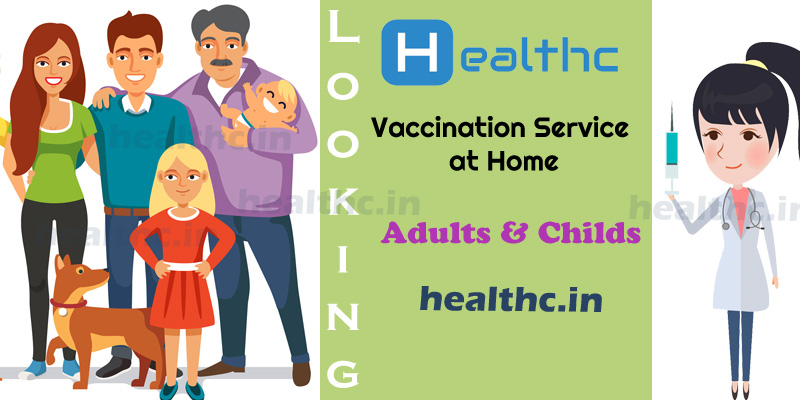Immunization is the most ideal approach to secure your kid against numerous unsafe ailments. In India, antibodies avoid ailments, for example, diphtheria, lockjaw, pertussis (challenging hack), polio, Haemophilus influenzae type B (Hib), rotavirus, hepatitis B, measles, mumps, rubella, chickenpox, pneumococcal and meningococcal sicknesses, and human papillomavirus infection (HPV).
This schedule of recommended vaccinations may vary depending upon where you live, your youngster’s wellbeing, the kind of antibody, and the immunizations available.
Role of Vaccinations
Children’s or Youngsters are very vulnerable to coming down with contamination’s and ailments, particularly in their initial years. This is on the grounds that their safe framework – which is the body’s guard framework against disease causing microorganisms (pathogens) – isn’t completely grown yet.
The job of the insusceptible framework is to ensure the body by doing combating against pathogens. In any case, a few pathogens can overpower the invulnerable framework, and when this occurs, the youngster falls wiped out. It is generally the pathogens that can’t be perceived by the body that lead to issues.
At the point when children’s or youngsters get their antibody shots, it causes the invulnerable framework to perceive which living being is destructive and how to kill it. Along these lines the body is set up to battle pathogens when they assault, and your tyke is vaccinated from diseases.
Top 8 Reasons to Protect Children Through Immunization
1. As guardians, we need to do everything conceivable to protect our kids solid and from preventable ailments. Immunization is the most ideal approach to ensure this.
2. Vaccination is absolutely protected and successful. All antibodies experience long and point by point survey by researchers, specialists, and the administration to ensure they are protected.
3. Pediatric associations, for example, the Indian Academy of Pediatrics and the Centers for Disease Control and Prevention firmly bolster securing kids with suggested vaccinations.
4. Vaccination shields kids from genuine ailment and difficulties. Without immunization, these diseases can prompt conditions, for example, loss of motion of appendages, hearing misfortune, spasms, removal of an arm or leg, mind harm, or even demise.
5. Diseases like measles, mumps, and challenging hack are immunization preventable yet at the same time a risk internationally. Numerous youngsters get contaminated by them consistently.
6. In spite of the fact that vaccination has prompted a sharp decrease in the frequency of numerous irresistible ailments, some of them are still very basic in different nations. They might be conveyed to your nation by universal explorers. On the off chance that youngsters are not immunized, they could get contaminated by one of these infections from explorers or while voyaging themselves.
7. On the off chance that numerous guardians choose not to inoculate their kids, it may trigger an episode of preventable ailments. Such a pandemic can end up being unfortunate for kid human services.
8. In the event that youngsters aren’t vaccinated, they can spread ailments to other youthful kids, babies who are too little to be in any way immunized, or to individuals with powerless resistance, for example, malignant growth patients.
Vaccination Chart for New Born Babies up to 12 years Children in India with Cost
| Age (completed weeks/months/years) |
Vaccines | Doses | Content Tag | Price/Dose |
| Birth | Bacillus Calmette–Guérin (BCG) | 1 | BCG | ₹91 – ₹1025 |
| Oral polio vaccine (OPV 0) | 1 | OPV | ₹230 | |
| Hepatitis B (Hep – B1) | 1 | Hep -B | ₹52.25 – ₹6000 | |
| 6 weeks | Diptheria, Tetanus and Pertussis vaccine (DTP 1) | 1 | DTP | ₹225 |
| Inactivated polio vaccine (IPV** 1) | 1 | IPV | ₹440 | |
| Hepatitis B (Hep – B2) | 1 | Hep -B | ₹52.25 – ₹6000 | |
| Haemophilus influenzae type B (Hib 1) | 1 | Hib | ₹113 – ₹252.5 | |
| Rotavirus 1 | 1 | Rotavirus | ₹689 – ₹1499 | |
| Pneumococcal conjugate vaccine (PCV 1) | 1 | PCV | ₹1495 – ₹3801 | |
| 10 weeks | Diptheria, Tetanus and Pertussis vaccine (DTP 2) | 1 | DTP | ₹225 |
| Haemophilus influenzae type B (Hib 2) | 1 | Hib | ₹113 – ₹252.5 | |
| Inactivated polio vaccine (IPV** 2) | 1 | IPV | ₹440 | |
| Hepatitis B (Hep – B3) | 1 | Hep -B | ₹52.25 – ₹6000 | |
| Rotavirus 2 | 1 | Rotavirus | ₹689 – ₹1499 | |
| Pneumococcal conjugate vaccine (PCV 2) | 1 | PCV | ₹1495 – ₹3801 | |
| 14 weeks | Diptheria, Tetanus and Pertussis vaccine (DTP 3) | 1 | DTP | ₹225 |
| Haemophilus influenzae type B (Hib 3) | 1 | Hib | ₹113 – ₹252.5 | |
| Inactivated polio vaccine (IPV** 3) | 1 | IPV | ₹440 | |
| Hepatitis B (Hep* – B4) | 1 | Hep B | ₹52.25 – ₹6000 | |
| Rotavirus 3**** | 1 | Rotavirus | ₹689 – ₹1499 | |
| Pneumococcal conjugate vaccine (PCV 3) | 1 | PCV | ₹1495 – ₹3801 | |
| 6 months | Typhoid Conjugate Vaccine (TCV#) | 1 | TCV | ₹150 – ₹525 |
| 9 months | Measles, Mumps, and Rubella (MMR – 1) | 1 | MMR | ₹155 – ₹600 |
| 12 months | Hepatitis A (Hep – A1) | 1 | Hep -A | ₹1003 – ₹1395 |
| Influenza (Yearly)****** | 1 | Influenza | ₹500 – ₹700 | |
| 15 months | Measles, Mumps, and Rubella (MMR 2) | 1 | MMR | ₹155 – ₹600 |
| Varicella 1 | 1 | Varicella | ₹1625 – ₹2259 | |
| Influenza (Yearly)****** | 1 | Influenza | ₹500 – ₹700 | |
| PCV booster 1 | 1 | PCV | ₹1495 – ₹3801 | |
| 16 to 18 months | Diphtheria, Perussis, and Tetanus (DTP B1) | 1 | DTP | ₹225 |
| Inactivated polio vaccine (IPV*** B1) | 1 | IPV | ₹440 | |
| Hepatitis A (Hep – A2*****) | 1 | Hep -A | ₹1003 – ₹1395 | |
| Haemophilus influenzae type B (Hib B1) | 1 | Hib | ₹113 – ₹252.5 | |
| 4 to 6 years | Diphtheria, Perussis, and Tetanus (DTP B2) | 1 | DTP | ₹225 |
| Varicella 2 | 1 | Varicella | ₹1625 – ₹2259 | |
| Measles, Mumps, and Rubella (MMR 3/MMRV) | 1 | MMR | ₹155 – ₹600 | |
| 9 to 14 years | Tdap | 1 | Tdap | ₹767 – ₹1098 |
| Human Papilloma Virus (HPV 1 & 2) | 1 | HPV | ₹2190 – ₹2259 | |
| 15 to 18 Years | Tdap | 1 | Tdap | ₹767 – ₹1098 |
| Human Papilloma Virus (HPV 1,2 & 3) | 1 | HPV | ₹2190 – ₹2259 |
Note: All the vaccines mentioned on above immunization schedule are given in all the government hospitals in India so there is no need to go to private hospital for vaccines.
How can I Reduce the pain?
1. Apply a topical anesthetic (a cream that causes temporary numbness) an hour before getting the needle. You may have to confirm with your doctor what part of your child’s body the shot will be given (for example, the arm or the leg). Your pharmacist can help you find the cream.
2. Nurse your baby while he gets the needle, or give your baby sugar water (with a teaspoon or pacifier) just before the shot.
3. Use distractions (blow bubbles, read a book), suggest deep breathing, remain calm and physically comfort your child (cuddle, hold hands) during the needle.
4. If your child is crying or fussy after getting the shot, you can give her acetaminophen (such as Tylenol or Tempra).
Keeping your child’s immunization record up to date
Ask the doctor or medical attendant to give you a composed record (ordinarily by composing it in your tyke’s antibody booklet) and take this record with you at whatever point you take your kid to a doctor, a hospital or clinic. An exceptional antibody record is particularly vital on the off chance that you move to another region or region, as immunization plans are not the equivalent all over the place. Your kid may miss immunization dosages if your new doctor or hospital or clinic does not know precisely which vaccines he has effectively gotten.
Pulse Polio Programme India 2019
Children in the age range 0 – 5 years must also be given the dose(s) of Oral Polio Vaccine (OPV) as a part of the Pulse Polio Programme by government of India. The Pulse Polio schedule for 2019 has been released and the dates for pulse polio immunization are March 9th & March 10th.
Healthc.in Portal offer child vaccination service at home in Bangalore


